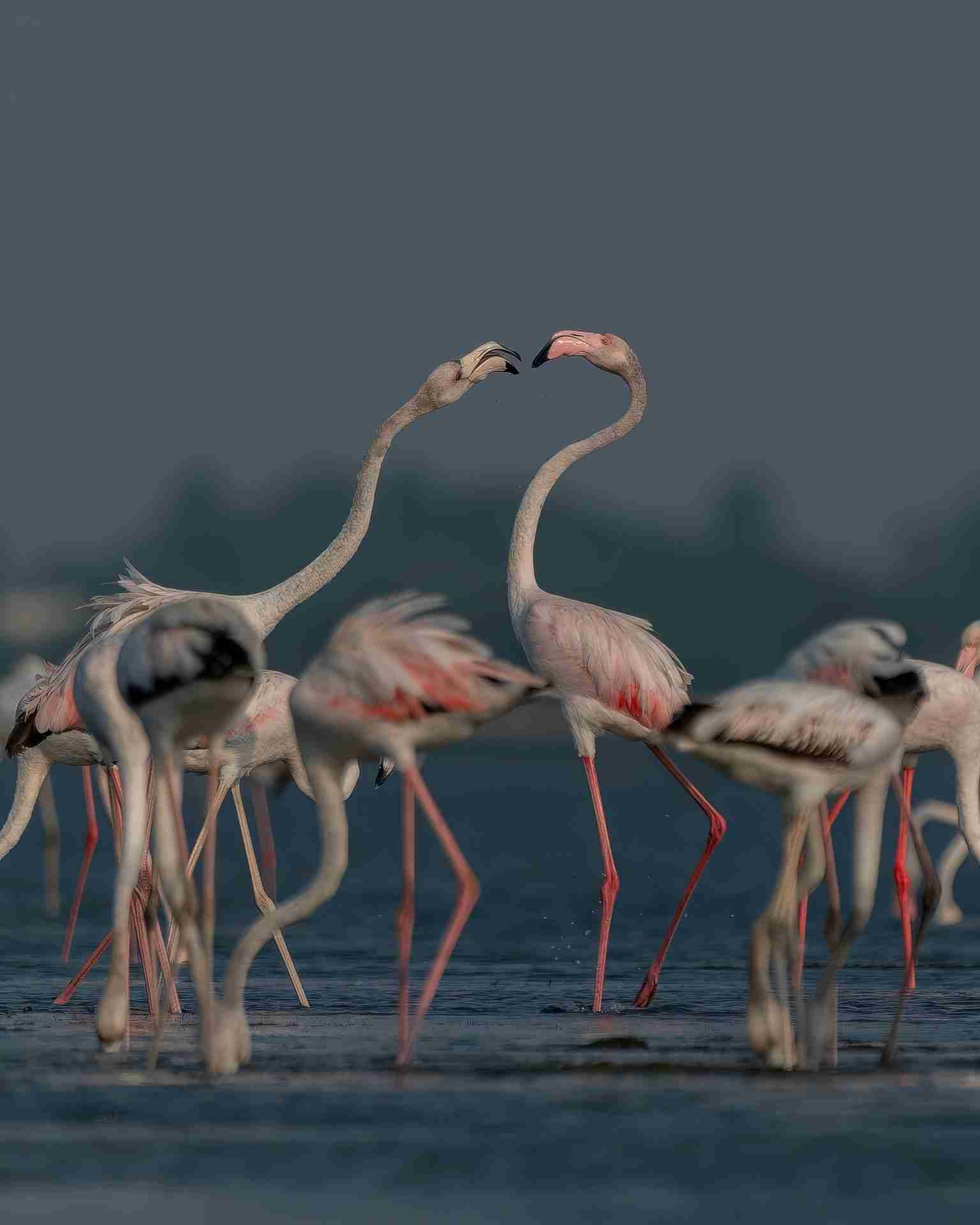Cyprus, an island where East meets West, offers more than just beautiful beaches and ancient ruins. It’s a paradise for bird watchers, with its unique position along migratory paths between Europe, Asia, and Africa. This guide explores the best spots for bird watching across the island, focusing on the seasonal migrations and local species you can expect to see.
Spring Migration: A Bird Watcher’s Feast
Spring, particularly from March to May, is a thrilling time for bird watchers in Cyprus. As birds migrate north to Europe, the island becomes a temporary home to a variety of species. The Akrotiri Salt Lake and surrounding wetlands are particularly vibrant during this period. Visitors can expect to see flocks of flamingos, herons, and the striking black-winged stilt. The area around the British Base of Akrotiri, although restricted, provides guided tours that can offer a glimpse into the densest bird populations.
Summer Residents: Coastal and Inland Avian Life
During the hot summer months, from June to August, bird activity can be quieter, but there are still many resident species active, especially early in the morning and late in the evening. The Cape Greco National Park offers a chance to see the spectacular Eleonora’s falcon and the rare chukar partridge. Night walks and early morning trips are recommended to avoid the midday heat and to catch birds when they are most active.
Autumn Returns: Witness the Reverse Migration
Autumn marks another exciting season for bird watchers as many species make their return journey to Africa. From September through November, the Larnaca Salt Lakes shine as a hotspot for bird watching. This period is your best chance to see a wide variety of waders, ducks, and terns. The lakes also host one of Cyprus’ most beloved visitors, the greater flamingo, which arrives in large numbers and adds a splash of pink to the landscape.
Winter Watch: Enduring Species and Rare Sightings
Winter in Cyprus is mild, and while many birds have migrated, several interesting species remain. The Paphos Forest is an excellent location for spotting the endemic Cyprus warbler and the Cyprus weather, both of which are residents year-round. Bird watchers can enjoy these quieter months with less competition from tourists and more serene watching conditions.
Tips for Aspiring Bird Watchers in Cyprus
- Equipment: A good pair of binoculars and a field guide to European birds are essential.
- Timing: Early mornings or late afternoons are best for bird watching, as birds are most active during these times.
- Respect Nature: Always keep a respectful distance from wildlife and avoid disturbing their natural habitats.
- Local Guides: Consider hiring a local guide who can provide expert knowledge and access to the best spots.
Cyprus offers a unique opportunity to witness the grand ballet of migratory and resident birds. Whether you’re a seasoned bird watcher or a curious traveler, the island’s avian life will not disappoint. Pack your binoculars, and prepare for an unforgettable adventure in the skies of Cyprus!
BirdLife Cyprus is the leading non-governmental organization in Cyprus dedicated to conserving wild birds and their habitats. As the national partner of BirdLife International, it spearheads several important conservation, advocacy, and educational initiatives.
Conservation Efforts: The organization focuses on protecting important bird and biodiversity areas. It undertakes systematic monitoring to inform conservation strategies and engages in actions to safeguard priority species and habitats. Significant projects address illegal bird trapping, preserve important bird areas (IBAs), and ensure the well-being of endemic and migratory species.
Advocacy and Policy: Additionally, this group is actively involved in advocating for improved bird protection laws. Working at national and European levels, it influences decision-making processes to ensure environmental legislation supports effective conservation efforts.
Research and Monitoring: Conducting scientific research and monitoring programs is crucial for understanding the populations and challenges faced by birds. Efforts include the Cyprus Common Bird Monitoring Scheme and tracking of illegal bird trapping.
Education and Awareness: Furthermore, educational programs and public awareness campaigns are vital in fostering a conservation culture across the island. Engaging with schools, communities, and the broader public, the organization promotes the importance of conservation and responsible environmental stewardship.
Volunteer and Membership Opportunities: The group also encourages public involvement through volunteering and membership. Participants may engage in fieldwork, educational activities, and other conservation projects.
Publications and Resources: A wealth of resources, including guides, reports, and newsletters, helps disseminate information on conservation topics and organizational activities.
Through its comprehensive approach, this organization plays a crucial role in the protection and study of Cyprus’s avian life, striving for a sustainable future for the island’s birds and their environments.

